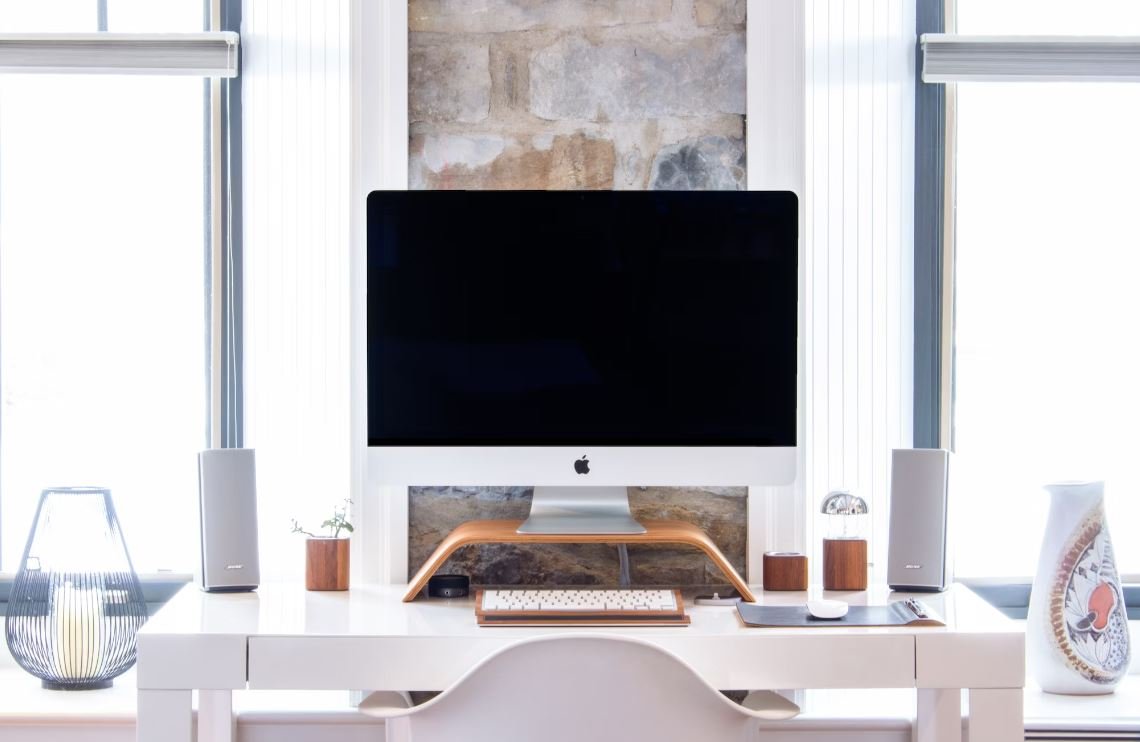Application Cover Letter
When applying for a job, a well-crafted application cover letter can greatly increase your chances of getting noticed and securing an interview. It is an essential document that introduces you and highlights your qualifications and suitability for the position.
Key Takeaways
- An application cover letter is a document that introduces you to a potential employer and showcases your qualifications.
- A well-written cover letter is concise, tailored to the job description, and highlights your relevant skills and experiences.
- Personalize your cover letter by addressing it to a specific person, if possible.
- Proofread your cover letter carefully to avoid any grammatical or spelling errors.
- Use a professional tone and language throughout your cover letter.
Structure of an Application Cover Letter
For an effective cover letter, it is important to follow a clear structure:
- Header: Include your contact information and the recipient’s details (if known).
- Salutation: Address the letter to the hiring manager or the person specified in the job posting.
- Introduction: State the purpose of your letter and the position you are applying for.
- Body: Highlight your relevant skills, experiences, and accomplishments that make you a strong fit for the job.
- Closing: Express your gratitude, reiterate your interest in the position, and provide your contact information.
Key Components of a Strong Cover Letter
A successful application cover letter should include the following key components:
- Relevance: Tailor your letter to the specific job description, emphasizing your relevant skills and experiences.
- Conciseness: Keep your letter to one page and avoid unnecessary details.
- Employer’s Needs: Clearly demonstrate how your qualifications meet the employer’s needs and why you are an ideal candidate.
- Uniqueness: Stand out from other applicants by presenting your unique selling points and achievements.
- Professional Language: Use proper grammar, spelling, and tone throughout your letter.
Example Application Cover Letter Template
An example of an application cover letter template:
| Your Name | Your Address | City, State, Zip Code |
|---|---|---|
| Recipient’s Name | Company Name | Company Address |
| Date | City, State, Zip Code | |
| Subject: Application for [Position Title] |
Conclusion
Writing an effective application cover letter is crucial for making a strong first impression on potential employers. By highlighting your qualifications and aligning them with the job requirements, you can greatly increase your chances of getting invited for an interview. Remember to tailor your letter to the specific job and company, and take the time to proofread it for errors. Good luck with your job application!

Common Misconceptions
Paragraph 1
One common misconception people have about application cover letters is that they are not important or necessary. Many individuals believe that their resume alone is sufficient to showcase their skills and qualifications. However, cover letters provide an opportunity to personalize your application and highlight specific experiences that are relevant to the position you are applying for.
- Cover letters allow you to expand on your resume and provide additional details about your qualifications.
- They demonstrate your written communication skills and attention to detail.
- Employers often view cover letters as an indication of your enthusiasm and motivation for the position.
Paragraph 2
Another misconception is that a cover letter should simply summarize the information already present in your resume. While it is important to avoid repetition, a cover letter should not be a duplicate of your resume. Instead, it should complement your resume by offering insights into your character, work ethic, and ability to fit into the company culture.
- Cover letters provide an opportunity to explain any employment gaps or career changes that may not be apparent in the resume.
- They allow you to address any potential red flags in your application, such as a lack of experience in a certain area.
- Personalizing your cover letter shows that you have put effort into understanding the company and the role you are applying for.
Paragraph 3
Some individuals believe that a longer cover letter is always better, thinking that additional information will impress the hiring manager. However, a lengthy cover letter can often be overwhelming and may deter hiring managers from reading it in its entirety. It is important to keep your cover letter concise and focused on the most relevant information.
- A well-written cover letter should ideally be no more than one page long.
- Focus on the most important qualifications and experiences that align with the job requirements.
- Highlighting your key accomplishments shows your potential value to the company.
Paragraph 4
There is a misconception that submitting a generic cover letter is sufficient for all job applications. However, employers can easily recognize generic cover letters that lack personalization and effort. Tailoring your cover letter to each specific job opportunity can greatly increase your chances of standing out among other applicants.
- Research the company and the position you are applying to and incorporate specific details into your cover letter.
- Address the hiring manager by name, if possible, to add a personal touch.
- Highlight the reasons why you are interested in the company and how you can contribute to their goals.
Paragraph 5
Lastly, many individuals think that a cover letter should only focus on their own needs and qualifications. However, employers are also interested in what you can bring to their organization. It is important to strike a balance between highlighting your own skills and addressing how you can contribute to the company’s success.
- Showcase your understanding of the company’s values and mission and explain how you can contribute to them.
- Highlight any relevant skills or experiences that make you a perfect fit for the company’s culture.
- Demonstrate your enthusiasm and passion for the company and the position you are applying for.

—
Top 10 Skills Employers Look for in Cover Letters
According to a survey conducted by CareerBuilder, these are the top 10 skills that employers often seek in cover letters:
| Skill | Percentage of Employers |
|---|---|
| Strong communication | 87% |
| Attention to detail | 72% |
| Problem-solving | 69% |
| Leadership | 64% |
| Teamwork | 62% |
| Time management | 58% |
| Adaptability | 48% |
| Organizational skills | 46% |
| Analytical thinking | 42% |
| Creativity | 39% |
—
Preferred Length of a Cover Letter
When it comes to cover letters, it is important to strike the right balance in terms of length. Here is the preferred word count based on a study by TheLadders:
| Cover Letter Length | Average Response Rate |
|---|---|
| Less than 150 words | 17% |
| 150-300 words | 49% |
| 300-500 words | 38% |
| More than 500 words | 16% |
—
Effective Cover Letter Opening Sentences
Grabbing the attention of the hiring manager from the very beginning is crucial. Here are some effective opening sentences revealed by The Muse:
| Opening Sentence | Percentage of Recruiters |
|---|---|
| “I’m writing to apply for…” | 29% |
| “I’m excited to apply for…” | 21% |
| “I’d love to be considered for…” | 16% |
| “I am writing to express my interest in…” | 13% |
| “I have always admired…” | 11% |
—
Common Mistakes to Avoid in a Cover Letter
Make sure to steer clear of these common cover letter mistakes:
| Mistake | Percentage of Hiring Managers |
|---|---|
| Grammatical errors | 72% |
| Not customizing the letter | 60% |
| Incorrect company information | 46% |
| Focusing on generic skills | 34% |
| Too lengthy | 29% |
| Unprofessional tone | 21% |
—
Cover Letter Submission Methods Preferred by Employers
Here’s how employers prefer to receive cover letters:
| Submission Method | Percentage of Employers |
|---|---|
| Email attachment | 59% |
| Online application form | 45% |
| Company website | 35% |
| Postal mail | 19% |
—
Time Spent Reviewing a Cover Letter
Employers typically spend different amounts of time reviewing cover letters:
| Time Spent | Percentage of Employers |
|---|---|
| Less than 1 minute | 26% |
| 1-2 minutes | 47% |
| 2-3 minutes | 22% |
| More than 3 minutes | 5% |
—
Importance of a Customized Cover Letter
Recruiters value a customized cover letter. Here’s how it impacts the hiring decision:
| Outcome | Percentage of Recruiters |
|---|---|
| Increases chance of an interview | 75% |
| No impact | 15% |
| Decreases chance of an interview | 10% |
—
Cover Letter Appearance Preferences
Employers have different preferences when it comes to cover letter appearance:
| Prefer | Percentage of Employers |
|---|---|
| E-mail format | 42% |
| PDF format | 31% |
| Word document format | 18% |
| Plain text format | 9% |
—
Cover Letter Tone Preferences
Recruiters have preferences when it comes to the tone of a cover letter:
| Prefer | Percentage of Recruiters |
|---|---|
| Professional | 64% |
| Friendly | 19% |
| Formal | 13% |
| Humorous | 4% |
—
In conclusion, crafting an effective cover letter is crucial in the job application process. Employers value strong communication skills, attention to detail, problem-solving abilities, leadership qualities, teamwork, time management, adaptability, organizational skills, analytical thinking, and creativity in cover letters. Striking the right length, using attention-grabbing opening sentences, avoiding common mistakes, and customizing the letter based on the job requirements greatly enhance the chances of securing an interview. Tailoring the appearance and tone of the letter to employers’ preferences also plays a role in making a positive impression. Remember, your cover letter serves as a gateway to showcasing your qualifications and standing out among other applicants.
Frequently Asked Questions
What is an application cover letter?
An application cover letter is a document that accompanies a job application or resume. It provides a brief introduction about the candidate and highlights their skills and qualifications relevant to the position they are applying for.
Why is a cover letter important in a job application?
A cover letter allows candidates to showcase their personality, communication skills, and enthusiasm for the job. It provides an opportunity to go beyond the resume and explain why they are the right fit for the position. A well-written cover letter can enhance the chances of getting an interview.
What should be included in a cover letter?
A cover letter should include the candidate’s contact information, the date, a personalized salutation, an introduction, a body paragraph discussing relevant skills and experiences, a closing paragraph expressing interest in the position, and a signature.
How long should a cover letter be?
An ideal cover letter should be concise and to the point. It is recommended to keep it within one page and avoid exceeding 3-4 paragraphs. A good cover letter focuses on the most relevant information and avoids unnecessary details.
What is the difference between a cover letter and a resume?
While a resume provides a detailed overview of a candidate’s work experience, education, and skills, a cover letter is more focused on personalizing the application. It allows candidates to explain why they are interested in the position, highlight specific qualifications, and showcase their written communication skills.
Should a cover letter be customized for each job application?
Yes, it is highly recommended to customize a cover letter for each job application. Tailoring the letter to the specific job and company shows the candidate’s genuine interest and attentiveness to detail. Generic cover letters may come across as impersonal and can reduce the chances of being considered for the position.
When should a cover letter be submitted?
A cover letter should be submitted along with the job application or resume. It is typically requested by the employer in the application instructions, and failing to include one when requested may reflect poorly on the candidate’s attention to detail.
What are some common mistakes to avoid in a cover letter?
Common mistakes in a cover letter include grammatical errors, using a generic template without personalization, focusing too much on personal achievements instead of how they relate to the job, and not addressing the specific job requirements mentioned in the job posting.
Can a cover letter have bullet points?
While cover letters generally follow a paragraph format, it is acceptable to use bullet points in certain sections for emphasis or to list specific qualifications or achievements. However, it is important to ensure the overall structure and flow of the letter remain coherent.
Is it necessary to sign a cover letter?
While it may not be a strict requirement, it is considered professional to sign a cover letter before submitting it. This can be done either by printing a physical copy and signing it by hand or by using an electronic signature.





